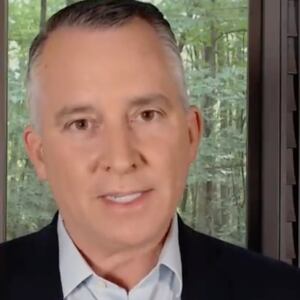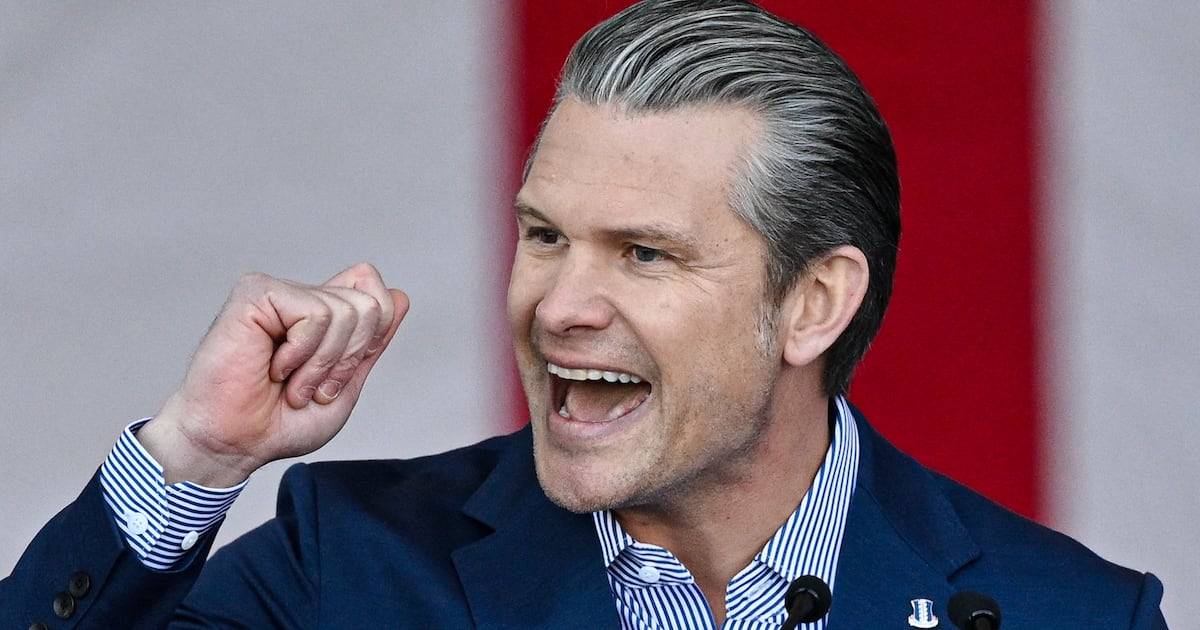If anybody wondered whether Casey DeSantis shared her husband’s distaste for anything deemed “woke,” there’s no more wondering.
The first lady of Florida delivered a hard-right video attacking LGBTQ and trans rights, presenting herself as the lead Mama of “Mamas for DeSantis,” an arm of the campaign, on a mission to protect children from a litany of imagined horrors—among them Diversity, Equity, and Inclusion (DEI) programs and “child mutilation.”
“When you come after our kids, we fight back, because there’s nothing we won’t do to protect our children. They’re not yours,” she said over a montage of fussy toddlers in masks, footage from Pride parades, and photos of transgender athletes in women’s sports. In a practiced air of defiance, she declares, “We will not allow you to exploit their innocence to advance your agenda.” Stunning in a royal blue halter top in a light-filled family room, Casey puts a pretty face on a dark message.
Some of us had wished she would help her husband dial back some of his virulent rhetoric about LGBTQ rights (after his campaign circulated a transphobic video). Well, we got our answer with Casey jumping directly into the fray and doubling down on the worst aspects of the GOP’s parental rights movement.
“It’s surprising because the spouse of the candidate is supposed to soften his image, a role that has been written about ad nauseam,” says Paul Costello, who worked with first lady Rosalynn Carter and with Kitty Dukakis, when her spouse was the Democratic Party’s 1988 nominee. “She’s a likable person who could be a great advocate for her husband. She should let him do whatever he needs to do politically and then tell the story of his family. I don’t know what going down the rabbit hole of the culture war gets them.”
It doesn’t take a political scientist to explain what the DeSantis campaign is doing, but I consulted one anyway. Casey’s diatribe about all the evils of wokeness struck Elaine Kamarck at the Brookings Institution as “reinforcing the (anti-woke) message, that’s for sure, and doing it from the female point of view, where they do have trouble with women’s issues. It’s an effort to mobilize women who are fearful and suspicious of all the cultural change that is going on,” and those are the women who are the GOP base.
Casey is telling women she’s one of them, and that she’s concerned about her kids—and ginning up that concern is a way to win back suburban white women who might otherwise vote Democratic because of the Supreme Court’s stripping women of the federal right to an abortion in 2022.
“Adapt or die” is the adage in politics, as in life, and what Casey DeSantis is doing aligns her with a message guaranteed to inspire an equal or greater reaction on the other side. “It’s an odd campaign strategy but it could work in a Republican primary,” says Kamarck, where chipping away at Donald Trump’s substantial GOP primary polling lead by outflanking him on the right appears to be the DeSantis strategy.
Casey DeSantis is the complete package: mediagenic, smart, and (like her husband) driven by ambition. She’s his No. 1 adviser in a closed circle that seems to play mainly to the Twitter universe. So far, judging by the polls, they’re making the wrong calls.
DeSantis is running to Trump’s right, presenting himself as someone who can get done what Trump started. But, in 2023, portraying Trump as too friendly to the LGBTQ community is a hard sell, even among hard core Republican voters.
Can Casey’s intervention rescue their campaign from oblivion? She stands out among the GOP spouses as the only one carving out a public space for herself—with a cheeky demeanor reminiscent of Sarah Palin’s “hockey mom,” only more dangerously polarizing.
In the famed poem, “Casey at the Bat,” there is no joy in Mudville as the Mighty Casey, passing up two chances to swing that might have had a better result, strikes out with the third. Casey DeSantis is just getting started, taking her first swing.
There is a long tradition in conservative politics of women taking the lead on social issues, says Jack Pitney, professor of American politics at Claremont McKenna College. He cites Phyllis Schlafly, a mother of six who played an outsized role in Republican efforts to kill the Equal Rights Amendment (ERA), and singer Anita Bryant, whose “Save the Children” campaign in the 1970s was a precursor to the policies championed by DeSantis. Bryant eventually lost her job as Florida’s citrus commission’s brand ambassador because of her anti-gay activism.
Casey DeSantis is playing the long game, betting on her husband to set down some markers that can last beyond 2024. She doesn’t have an independent record and it’s safe to assume there is no daylight between this native of South Carolina and her husband on policies or politics.
Profile writers may differ over whether she is more like Hillary Clinton, a spouse as ambitious for herself as she is for her husband, or Nancy Reagan, remembered for whispering to her husband when he faltered for words, “doing everything we can.”
Softening their husbands’ hard edges wasn’t in their portfolios; often it was quite the opposite. Still relative newcomers to the national political scene, we don’t know a lot about either DeSantis beyond what they’re telling us, and they’re telling us they’re really, really, really opposed to gay and lesbian and transgender rights.
We should believe them, even if Trump’s voters don’t.









